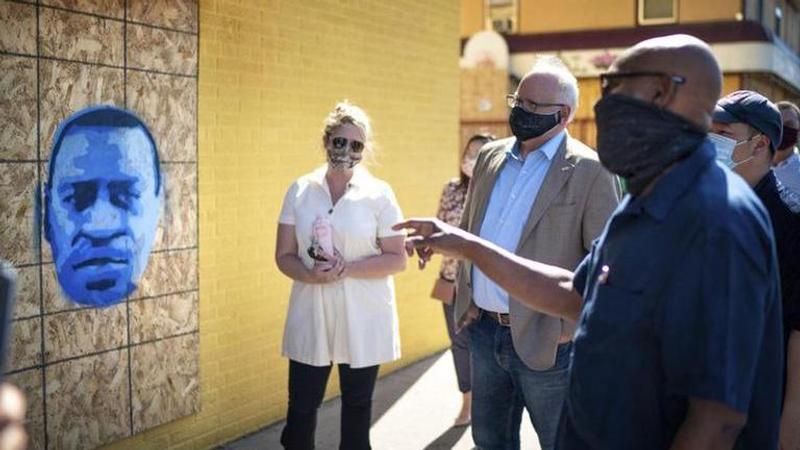Published 22:33 IST, June 10th 2020
Minnesota lawmakers pressed to make changes after Floyd
The death of George Floyd is sparking calls for the Minnesota Legislature to remove racial inequities from the criminal justice system in the state where he died and to aid neighborhoods damaged in unrest that followed.

Advertisement
The death of George Floyd is sparking calls for the Minnesota Legislature to remove racial inequities from the criminal justice system in the state where he died and to aid neighborhoods damaged in unrest that followed.
But it’s not clear yet how far lawmakers will go when they reconvene in a special session Friday, given that Republicans who control the Senate have been cool to major changes. Senate Majority Leader Paul Gazelka said his top priority instead will be trying to terminate the emergency executive powers that he contends Democratic Gov. Tim Walz abused while responding to both the coronavirus and the sometimes violent protests that spread worldwide from Minneapolis.
That hasn’t sat well with Democratic lawmakers who want change now in response to the death of Floyd, who died May 25 after a white Minneapolis police officer pressed his knee into the handcuffed black man’s neck for several minutes even after Floyd stopped moving and pleading for air.
“Black folks are sick and tired of literally suffering from people telling them to wait until the moment is right,” said Senate Assistant Minority Leader Jeff Hayden, an African American whose district was the site of the encounter.
Democratic lawmakers and governors in several states, including Wisconsin, New Jersey, Arizona and Oregon, are hoping to harness the anger over Floyd’s death to remake law enforcement, including new restrictions on the use of force. A proposal in Colorado would require departments to compile civilian demographic data in use-of-force cases and allow citizens to file lawsuits against police officers for misconduct. In Pennsylvania on Monday, black Democratic lawmakers displayed a Black Lives Matter banner while demanding movement on proposals to ban chokeholds, improve tracking of officers who have engaged in misconduct, and expand access to police video .
In Minnesota, Walz is expected to call a special session to extend the peacetime state of emergency that he declared as the coronavirus started to gain a foothold in his state. Minnesota law requires him to call lawmakers back to the Capitol when he extends those powers when the Legislature is not in session. Republican lawmakers say Walz has governed by fiat instead of involving them in the decision-making.
Walz was scheduled to discuss his agenda for increasing police accountability at a news conference Wednesday.
The bicameral People of Color and Indigenous Caucus has already offered a long slate of ideas that would stand a good chance of winning House approval, and they’re pressuring Senate Republicans into taking them up.
During a news conference Monday, Hayden said proposals most likely to advance include modifying use-of-force standards, prioritizing the sanctity of life, codifying the duty of police to intervene when they see another officer using excessive force, lifting the state’s ban on cities imposing residency requirements for officers, banning “warrior” use-of-force training for officers and banning chokeholds. Minneapolis has already adopted some of those changes in an agreement with the state human rights department.
“Minnesota needs to lead the nation in race reconciliation,” Gazelka said at a news conference Friday. “This is an opportunity that comes around once in a generation, and what are we going to do with that?”
But the closest he came to offering concrete proposals was saying that a stalled public construction borrowing bill that’s expected to be debated during the special session should include some sort of relief for the inner cities of Minneapolis and St. Paul, including damaged small businesses. He spoke in only general terms about criminal justice and educational equity issues, and suggested that big changes may have to wait.
A bonding bill needs a three-fifths majority in both chambers, and Hayden has threatened to withhold Senate Democratic votes unless lawmakers agree on addressing racial inequities, giving his party some leverage.
“Minnesota, and America, is watching to see what our first step will be,” said Democratic Senate Minority Leader Susan Kent, of Woodbury. “We have the opportunity to set the bar high and lead by example, not to tiptoe around this issue of racial injustice.”
22:33 IST, June 10th 2020




